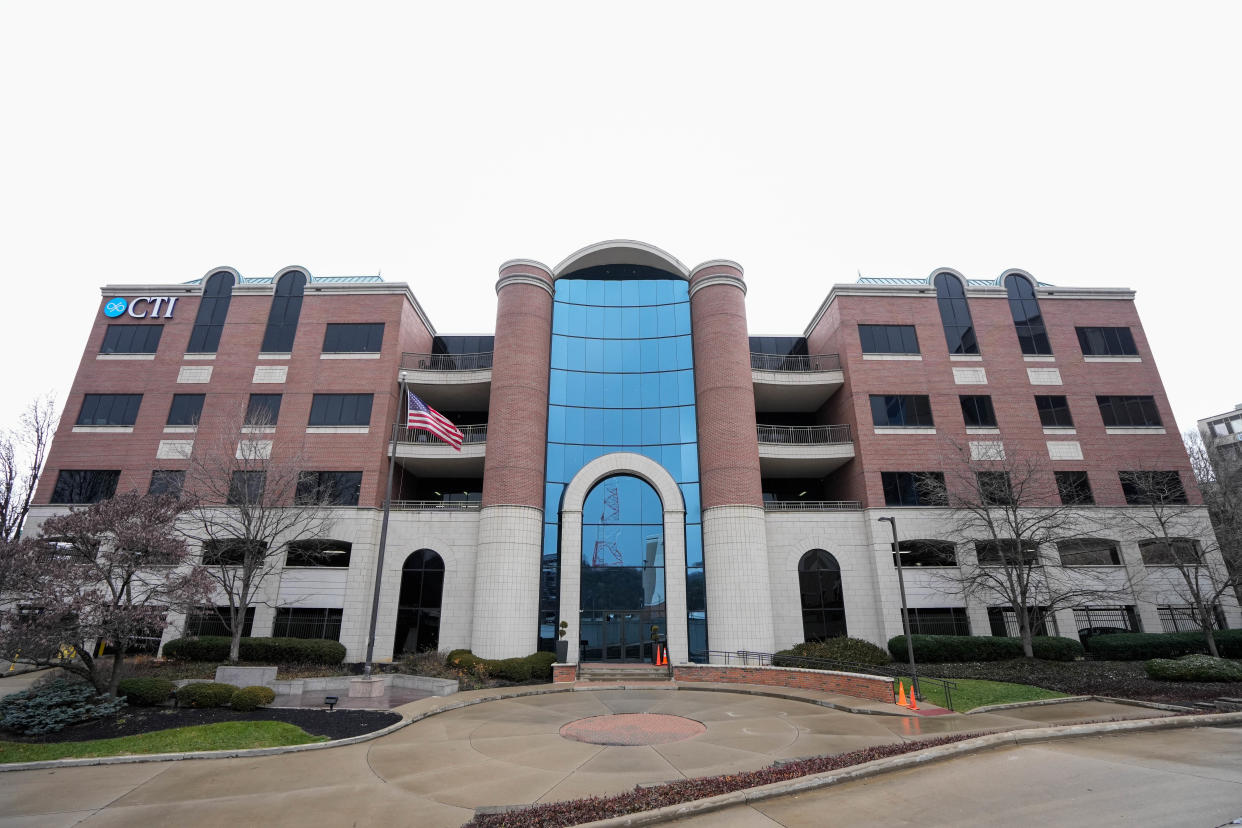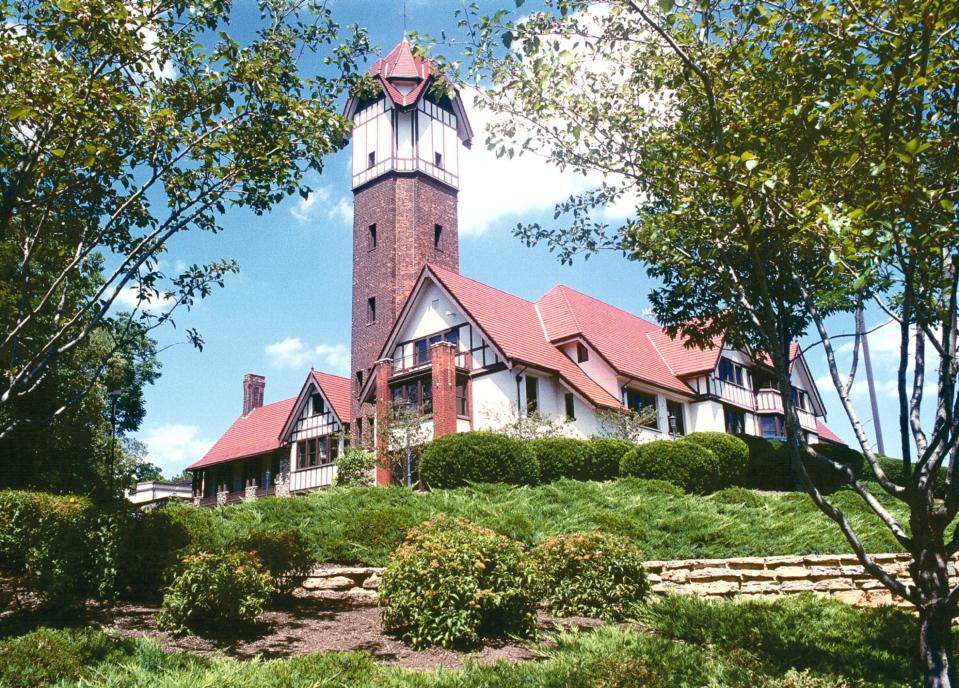A small Cincinnati college attracted nontraditional students. Now it may collapse

At 46, Rhonda Ramirez is two classes away from earning her bachelor's degree in maternal child health at Union Institute and University.
It took her 20 years to decide to go back to school, which she said wasn't easy. But her passion for counseling mothers in breastfeeding led her to switch careers and enroll at Union, a small, private, low-residency school headquartered in Cincinnati.
Now Ramirez, who lives in Virginia, said she has little hope Union will resume classes next semester − further pushing away her decades-long dream of obtaining a college degree. And she said she's "done waiting."
After years of financial distress, Union is at a breaking point. The federal government is taking steps to cut off financial aid to the university and plans to fine the school for millions of dollars. Professors say they stopped getting paid in April. And students, some sitting on mountains of debt, don't know if they'll ever have the chance to finish their degrees.
The issue came to a head in August when Union canceled classes for fall semester, leaving students and professors both with a sense of unease. Nonetheless, Union's website says classes begin Jan. 1 and continues to encourage prospective students to apply.
Union Institute and University serves less than 800 students, about a third of whom are Hispanic, according to the U.S. Department of Education's College Scorecard. There are about 180 faculty members at Union, most of whom work part-time.

Over the last several months, Ramirez said it's felt like Union "just kept dangling the carrot." Like many who spoke to The Enquirer, she's skeptical that there's a path forward.
University leaders didn't respond to requests for comment, and phone lines at the school have out-of-service messages. The Enquirer received an automated email response from the office of the president stating they are "out of the office until further notice."
"There's a lot of anger," Ramirez said.
Issues at Union Institute and University began years ago
Warren Moliken, chief operating officer of The Institute for Educational Studies, an online graduate education program that partnered with Union in 2021, said he knew something was amiss with Union's finances from the very beginning.
For 25 years The Institute for Educational Studies partnered with Endicott College, a private school in Massachusetts. But when challenges arose due to the COVID-19 pandemic, the institute latched on to Union. Moliken said Union was to pay the institute as soon as tuition money came in.
Instead, Moliken said the institute spent all of 2022 "playing the role of the bank," while Union used tuition money from the institute's students to cover other bills.
"We were never paid a penny per our contract," Moliken said. He's gone without a paycheck since May, and is going into debt by living off personal loans.
Past Union students say this isn’t the first time the university has run into trouble.
When Virginia resident Katherine Gotthardt heard the recent Union news, it stirred up old angst toward the university that she feels wronged her two decades ago.
“It’s beyond me how they’ve been getting away with it for so long,” she said.

At 54 years old and with student loan debt that’s ballooned to $200,000 with interest, Gotthardt said she has “given up on the daydream of earning a Ph.D.”
Gotthardt started in a doctoral program at Union in 2000. As a mother of two young daughters at the time, she was drawn to Union because of its low-residency programs that offer more flexibility than traditional colleges.
But she said a professor wouldn’t read her dissertation and administrators delayed signing off on paperwork. That meant she wasn’t progressing in her education, she said, while the school continued to collect thousands of dollars in tuition for two-and-a-half years.
Gotthardt said Union “caused lasting damage by destroying my career trajectory, my hopes of ever becoming financially secure on my own, and for a long time, my sense of self worth."
She couldn’t find reason with the professor who chaired her dissertation committee, and then when she started to question the university's legitimacy, the university kicked her out.
Gotthardt looked to transfer to other universities to finish her doctorate, but found the transcript she had from Union − which she wrote herself, per the program's instructions − wasn't valid. Traditionally, students do not write their own transcripts. Educators at other institutions were "horrified" at this practice, she said.
It turns out, Gotthardt's suspicions that the university was not meeting accreditation requirements were right. In 2004, the Cincinnati Business Courier reported the Ohio Board of Regents stepped in and had the university completely dismantle and revamp its Ph.D. program, while the U.S. Department of Education withheld at least $8 million in financial aid at that time over concerns about the doctoral program's academic rigor.
Gotthardt still doesn't have her degree. And the credits she does have aren't recognized anywhere else.
Meanwhile, the debt she's accrued has limited her life in other ways. She didn't buy a car in her own name until she was in her 50s.
"I do know that I will be dead by the time I can pay these loans," she said.
Professors sue Union Institute and University, accreditation in question
Union’s employees filed a class-action lawsuit against the private university in April saying it refused to pay its professors for over a month. Around the same time, the U.S. Department of Education got word that Union didn't pay its students their loan credit balances, instead misappropriating those funds to pay off the school's debt, according to a letter the federal government sent to Union President Karen Schuster Webb.
By August, the U.S. Department of Education placed Union on watch due to the school's failure to pay loan balances to its students. Union hasn't received federal student aid funding since then.
What's more, the scandal could cause the university to lose its accreditation from the Higher Learning Commission, which is set to review Union in 2026. And what employers or universities will recognize degrees or transcripts from a non-accredited university? The answer: very few.
Nikki Hamilton, a 2013 Union graduate, is applying for jobs now.
"How do you navigate a degree with a university that might not even be operating any longer?" she said. When potential employers ask her about Union in interviews, she doesn't know what to say.
Looming $4.2 million fine would likely end Union Institute and University, students and professors say
In September the Higher Learning Commission gave Union a financial distress designation. The federal government also issued Union an ultimatum the same month: Post a letter of credit or provide $12 million in financial protection by Oct. 13. The school did neither, according to the Nov. 7 letter from the U.S. Department of Education to Webb.
When the federal government made moves in November to permanently terminate aid to Union and fine the school $4.2 million, Union appealed. Now, it's a waiting game until the Department of Education issues a final decision.
But students and professors alike aren't holding their breath.
They haven't received word from the Webb in months. They think she's taken what was left of Union's cash and run off.
Moliken said The Institute for Educational Studies is partnering with Lasell University in Massachusetts to begin classes in January. The institute will come back from what's happened with Union, he said, but it will take at least two years to "thrive again." They've been unable to recruit a new cohort of students amid the turmoil.
As for the money − nearly $100,000 − Union owes The Institute for Educational Studies?
"We have no hope of seeing those funds," Moliken said.
For students, too, many questions linger. The federal government says if the school closes, students can apply for a closed school loan discharge or transfer their credits to another university to continue their studies.
But those options aren't cut and dry for everybody. Ramirez said she doesn't know any other schools with a degree in lactation. Other programs only have certificates in the field, she said.
"Anyone who thinks that school's gonna survive is just in denial, unfortunately," Ramirez said. "There's just no way."
This article originally appeared on Cincinnati Enquirer: Ohio college under fire: Didn't pay faculty, used tuition to pay debt

